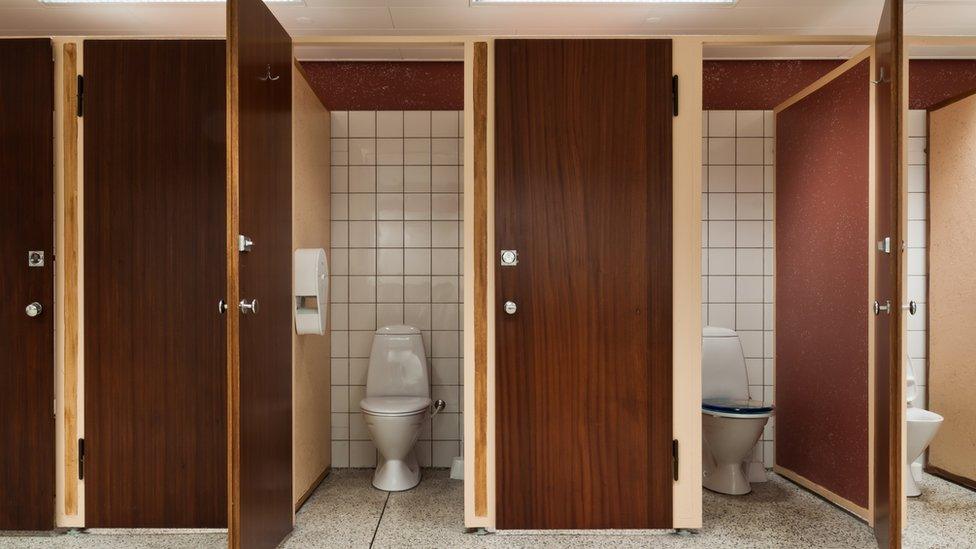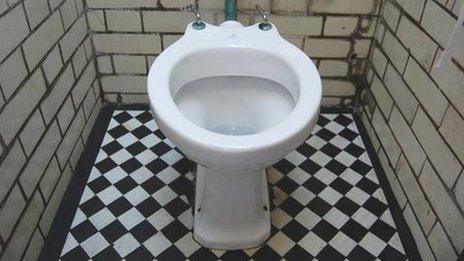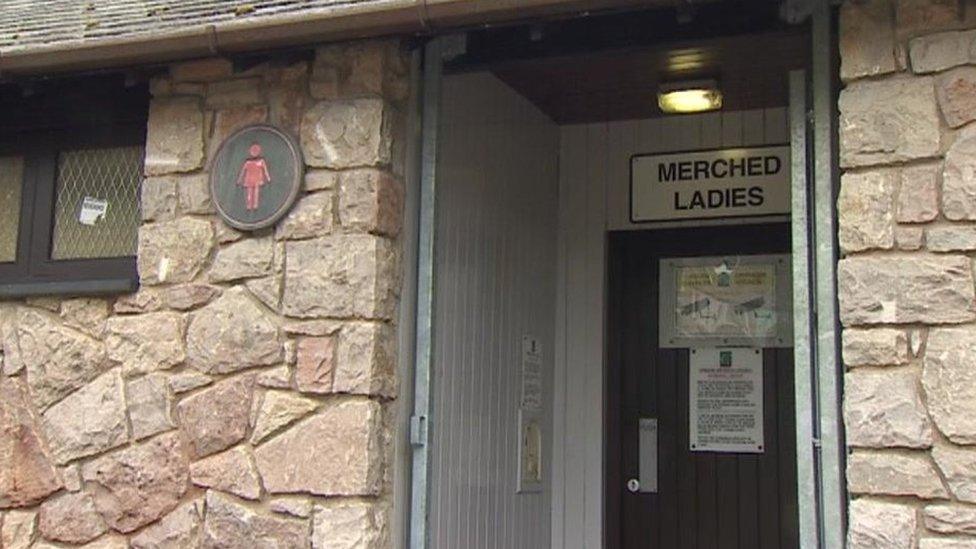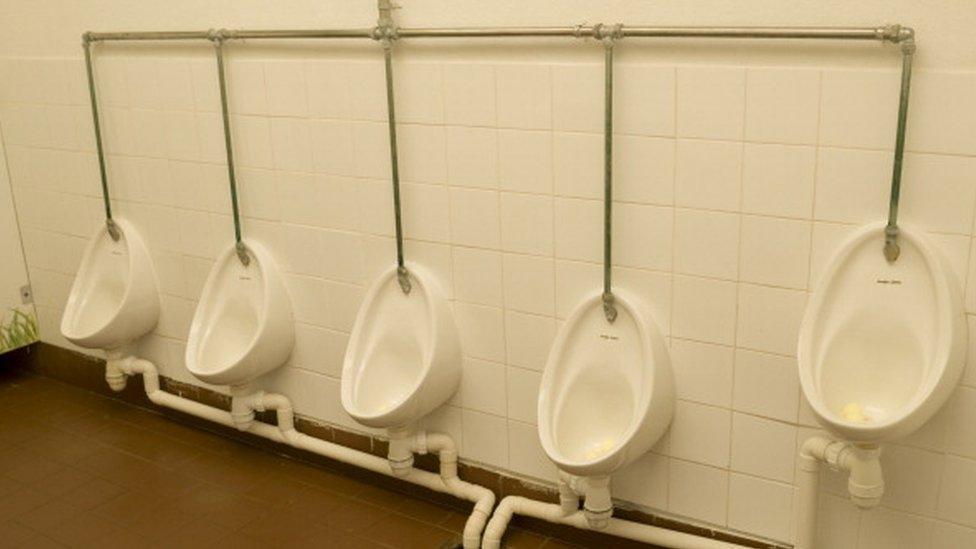Public loos rules should be Wales-wide, say toilet campaigners
- Published
Rob Poultney, who has Crohn's disease, said closing public toilets would be like putting him "under house arrest"
Rules on public toilets should be Wales-wide and not up to individual councils say campaigners as the Public Health Bill is reintroduced.
As part of the Welsh Government plans, councils will need to have a "public toilet strategy".
Rob Poultney of Criccieth, Gwynedd who has Crohn's disease, said it was vital for people to be able to access adequate toilet facilities.
And the British Toilet Association called for more clarity on the plans.
But the Welsh Local Government Association (WLGA) said the plans placed an "unnecessary and disproportionate burden" on local authorities.
Mr Poultney, 23, whose condition causes inflammation of the lining of the digestive system, said the disease and a lack of public toilets facilities made "it really difficult for him to leave home".
"It causes bowel problems and and discomfort, and it could lead to an accident... it would be very embarrassing for me."
He said it was essential for him to be able to access disabled toilets which often have a sink in the cubicle and called for each Welsh council to be ordered to provide a set number of toilets per population area.

Rob Poultney has Crohn's disease and campaigns against public toilet closures
"If this bill is legally binding, then councils haven't got a choice and it's a great thing," Mr Poultney added.
Meanwhile Ray Martin, managing director of the British Toilet Association, called for "one strategy across all 22 councils".
He said authorities should be legally obliged to provide toilets in truck stops, heritage sites, and major junctions, as well as in towns and villages.
"It's great that the councils will have to have a strategy - but we don't know exactly what that will be yet," he said.
"Going to the toilet is like eating and breathing. It's something we all do every day. It's vital we have the right facilities."
Public toilets across Wales have been closing as councils face budget cuts. Merthyr Tydfil in south Wales has no council-run toilets at all.
In March, seven public toilets closed in Cardiff, with costs estimated at £16 per use.
Earlier this year, Gwynedd council proposed shutting down two-thirds of all council-run toilet facilities to save £244,000.
But in June, the council's cabinet agreed to ask community and town councils to help fund public toilets in the county.
Anglesey council took the same approach.
Mr Poultney said handing toilet facilities over to community councils did not protect their future in the long term.
Mr Martin agreed, and said: "What happens in five years time, or when councillors retire?"

Both Anglesey and Gwynedd councils have asked community councils to run public loos
The WLGA said it was against the plans, unless they were accompanied by "adequate funding arrangements".
It warned that the proposed new duty was "unrealistic", and fears it would force councils to move funds away from services that are "of equal or greater priority".
More facilities could instead be provided through community toilet schemes; the community toilet grant scheme; more user charging and better planning.
A spokesperson added: "No doubt such proposals would require local authorities to regularly review their strategy; put in place action plans to secure their delivery and allow the Welsh Government to monitor progress with their delivery.
"This is clearly unrealistic in the current financial climate."
- Published7 November 2016

- Published31 March 2014

- Published3 March 2011
- Published2 June 2016

- Published7 June 2016

- Published20 May 2016
